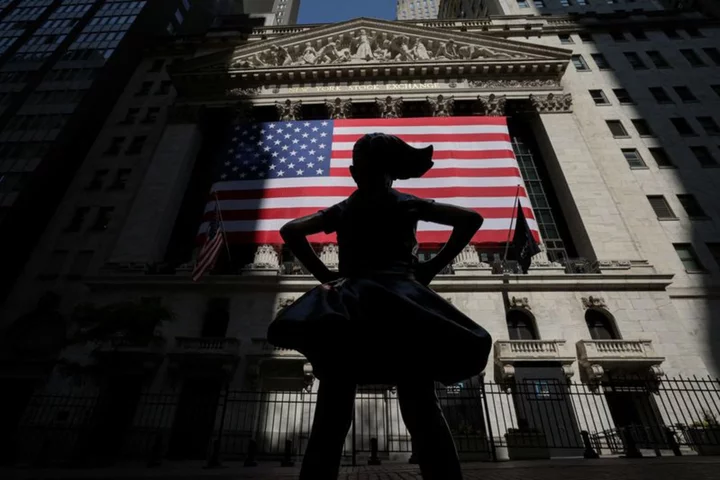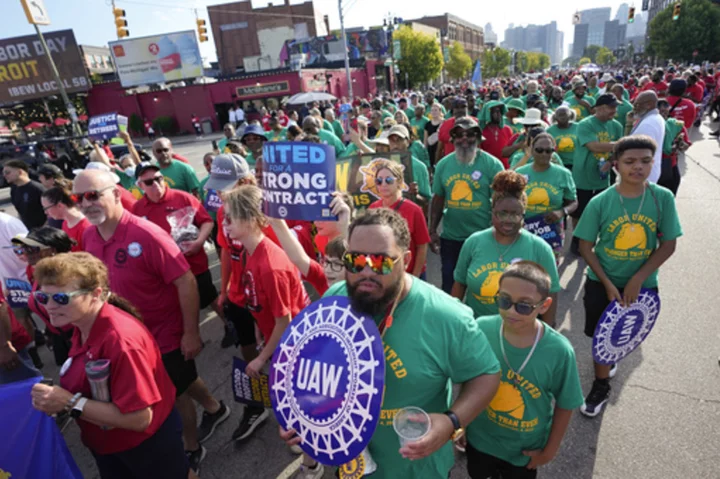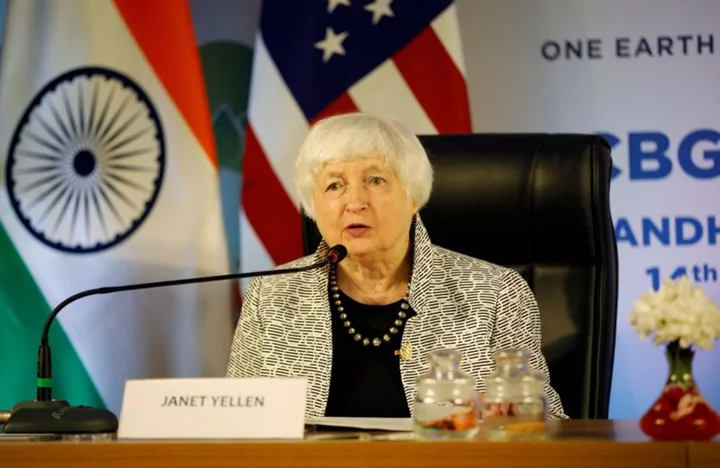By Shreyashi Sanyal
U.S. stock indexes fell on Wednesday as a deal to raise the nation's debt ceiling headed for a pivotal vote by lawmakers, while unexpectedly strong labor market data reinforced bets of another interest rate hike by the Federal Reserve.
A bill to lift the $31.4 trillion U.S. debt ceiling and achieve new federal spending cuts made its way to the House of Representatives for debate on Tuesday and an expected vote on passage is due later on Wednesday.
House passage would send the bill to the Senate, where debate could stretch to the weekend, as a June 5 deadline loomed.
"All signs point to the deal getting done but there's headlines about some Congress people who are against it," said Joe Saluzzi, co-manager of trading at Themis Trading. "Until that deal gets done, there will be a little bit of nervousness."
The debt ceiling debate has been an overhang for financial markets, but signs of progress have pushed the S&P 500 and the Nasdaq indexes toward monthly gains in May. The Nasdaq was on track for its best performance in May since 2020, rising 6.3%.
Data showed U.S. job openings unexpectedly rose in April, pointing to persistent strength in the labor market that could push the Federal Reserve to raise interest rates again in June.
Traders are currently pricing in a nearly 70% chance of a 25-basis point increase at the Fed's June 13-14 meeting. [FEDWATCH]
Investors now await the Labor Department's closely watched jobs report for May, due on Friday, which could show how resilient the economy has been to high interest rates and inflation.
Shares of Microsoft Corp rose 1.2%, helping combat losses on the Nasdaq after multiple brokerages raised their price targets based on the company's AI-led growth prospects.
This comes just as Nvidia Corp's shares fell 1.0% after hitting a record high on Tuesday as it briefly crossed $1 trillion in market value, banking on the AI boom.
The Philadelphia SE Semiconductor index fell 1.1% after hitting an over one-year high on Tuesday.
At 10:26 a.m. ET, the Dow Jones Industrial Average was down 276.49 points, or 0.84%, at 32,766.29, the S&P 500 was down 35.48 points, or 0.84%, at 4,170.04, and the Nasdaq Composite was down 100.79 points, or 0.77%, at 12,916.64.
Advance Auto Parts Inc plunged 31.7%, falling the most on the S&P 500, after the auto parts retailer cut its full-year forecasts.
Shares of other autoparts companies including Genuine Parts Co , Autozone and O'Reily Automotive fell between 4.6% and 6.1%.
HP Inc dropped 3.8% after it missed quarterly revenue estimates, as inflation-hit customers spent less on the company's personal computers.
Shares of Hewlett Packard Enterprise Co slipped 6.6% as it also missed Wall Street estimates for second-quarter revenue.
Declining issues outnumbered advancers for a 1.93-to-1 ratio on the NYSE and for a 1.54-to-1 ratio on the Nasdaq. The S&P index recorded two new 52-week highs and 18 new lows, while the Nasdaq recorded 19 new highs and 80 new lows.
(Reporting by Shreyashi Sanyal and Shashwat Chauhan in Bengaluru; Editing by Shounak Dasgupta and Maju Samuel)









